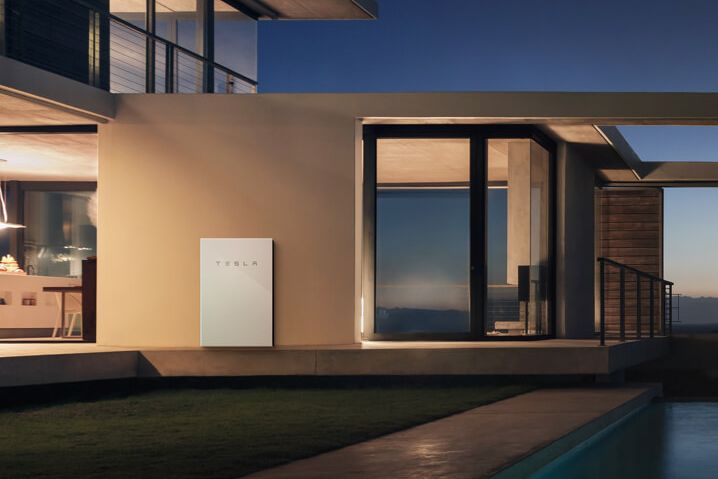
The displays, which are 12 feet tall and 7 feet wide, will be staffed by Tesla employees and will offer demonstrations of the solar products. Although it’s not part of the initial rollout, Home Depot may also begin offering Tesla’s highly anticipated solar roof, according to industry sources.
The stylish Tesla solar roofs are more expensive than traditional solar panels, as they look like regular roof shingles and cover the entire house. Some shingles contain solar collection technology and some don’t, but they’re meant to assuage homeowner’s concerns about installing blocky solar reflective tiles on their houses.
Lowe’s, the second-largest home improvement chain, is also interested in featuring Tesla’s solar power products in its stores.
The Powerwall batteries, mounted on the side of the house, are designed to store energy either collected from the solar panels or purchased during off-peak hours from the electrical grid. The stored electricity could be used during power outages, or even to recharge Tesla vehicles.
USA Today reports that some retail outlets in California already have the in-store displays, and they’re planned for Las Vegas and Orlando next week. With the customer’s address, the Tesla employees at the kiosks will be able to use satellite imagery to evaluate the sunlight and potential power generation at the location.
A Tesla solar power panel system will run anywhere from $10,000 to $25,000, with an extra $7,000 for the Powerwall battery. The solar roof, which may be a better option for homeowners who have to replace their entire roof, will cost about $52,000 for the average house.
Home Depot previously featured solar power products from SolarCity Corp., but that didn’t include the in-store displays that Tesla has introduced. Tesla’s acquisition of SolarCity in 2016 for $2 billion has made it a major player in the industry, and expanding into the home-improvement retail space could be a significant step towards adoption of clean energy at the household level.


